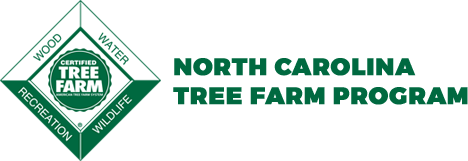Videos and Webinars – Economics
Timber Sales: Is it Time to Sell? (NC State Extension Forestry webinar)
Learning from experience can be very expensive when it comes to timber sales, many of which are once- or twice-in-a-lifetime occurrences. Dr. Bardon will explain how timber is sold and give tips on seeking professional help. Dr. Parajuli will explain markets and provide insight into managing for flat timber prices By using this information, you can make your next (or first) timber sale both a pleasant and profitable experience.
Understanding the Financial Aspects of Woodland Management (Cooperative Extension webinar)
Your woodlands are not just for enjoyment but can also be a source of revenue for you and your family. Financial decisions that you make today will have ramifications for your timber property for years to come. Learn more about what you need to know to make sound financial decisions.
Taxes
The Top Five Ways Forest Landowners Save Tax Dollars (NC State Extension Forestry webinar)
Forest landowners often try to maximize profits through minimizing management expenses or finding the highest price for their timber. However, taxes are a frequently overlooked area for savings. This webinar will discuss the top five ways forest landowners can decrease their federal income tax liability.
Casualty Loss and Income Tax Deductions Related to Timber and Landscape Trees (NC State Extension Forestry webinar)
Timber or landscape trees destroyed by recent fires, hurricanes or other storms are “casualty losses” that may allow the property owners to take a deduction on their federal income tax returns. To help timber owners, as well as home owners, who suffered timber or landscape tree damages with their tax reporting, this webinar will focus on the new tax law changes that Congress passed in 2017 that affect the casualty loss deductions starting in the 2018 tax year.
Timber Tax Filing for the 2018 Tax Year (Southern Regional Extension Forestry webinar)
To help the private forest landowners, foresters, loggers and timber businesses with their 2018 tax return filings and planning this one-hour webinar will discuss the timber-related income tax reporting rules, including the latest major new law changes affecting timber transactions.
Timber Tax Filing for the 2017 Tax Year (Southern Regional Extension Forestry webinar)
Sweeping overhaul of the Tax Code passed by Congress in December 2017 triggered questions about how the 2018 tax changes will affect forest landowners. To help the private forest landowners, foresters, loggers and timber businesses with their 2017 tax return filings and planning for the new tax law changes in 2018, this webinar explains the income tax reporting rules as well as the major new law changes affecting timber transactions.
Forest Products
From Logs to Lumber (North Carolina Tree Farm Program)
Tracking Logs from the Woods to the Mill (North Carolina Tree Farm Program)
More than Timber: Income Opportunities from Non-timber Forest Products (Cooperative Extension webinar)
While selling timber from your woodlands may be a great revenue source, it is not the only option for income. There are a range of possibilities to generate income from your woodlands that depend on your location, forest type and more, that are compatible with timber management too. For some areas, pine straw can be a revenue source while other woodlands may be ‘farmed’ for medicinal plants and more. In this session learn more about the opportunities to generate income from your woodlands.
Agroforestry: Forest Botanicals (National Tree Farm Program)
Eric Burkhart, faculty instructor at Pennsylvania State University, shares insights from his studies and involvement with native plant species on eastern U.S. forestlands that are wild harvested for the domestic and international plant trade. Quality-control, profitability, and sustainability within this industry are discussed.
Forest-Cultivated Mushrooms (National Tree Farm Program)
Ken Mudge, associate professor at Cornell University, explores the four stages that a prospective mushroom grower must consider for forest cultivation of shiitake mushrooms. Acquisition of substrate logs, inoculation, resting, fruiting and harvesting of mushrooms are covered in this webinar.
Ramping Up to Forest Farm Culinary Delights (National Tree Farm Program)
Edible forest products are becoming more popular in the culinary world. Foraging for wild foods is the latest craze among foodies. But this may be putting excessive pressures on natural plant populations, and the long-term conservation of the plants requires sustainable production. Forest landowners may have opportunities to produce edible forest products under the shade of their woodlots. Though this presentation focuses on forest farming wild onions (aka, ramps or leeks) it includes discussions of other edible forest products, as well.
Forest Brews (National Tree Farm Program)
Learn how to turn your non-timber forest products into tasty drinks of all kinds **Warning this webinar focuses on making alcoholic drinks.
The Incredible Edible Ostrich Fern (National Tree Farm Program)
This webinar will discuss the ostrich fern and its spring edible, the fiddlehead. Learn how to identify an ostrich fern fiddlehead; what is a sustainable harvest; are fiddleheads good for you; how do you cook them and more.
Ginseng and Mushrooms: Goodies From Your Woods (National Tree Farm Program)
Jeanine Davis, associate professor and Extension specialist at N.C. State University, will explain how to make a profit from your forest without cutting trees. In North America, ourforests are often populated with a wide varietyof valuable native plants and fungi that can be sustainably wild harvested and sold. Many others can be introduced and cultivated toprovide a steady stream of products to harvest for many years to come.
